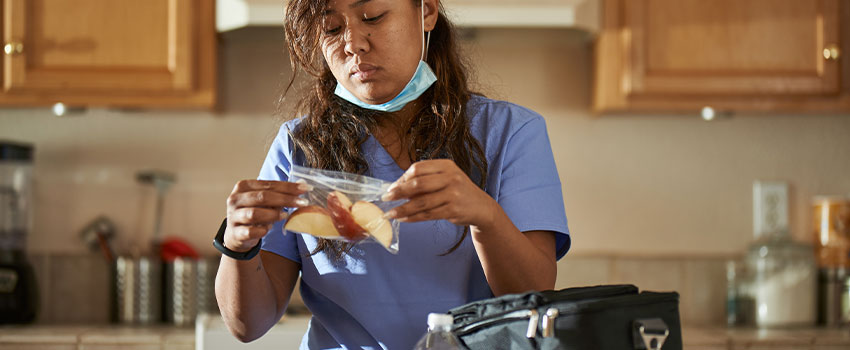Daily Habits That Have a Big Impact on Your Finances | St. Johns Bank

When we think about our finances, we tend to think about the big picture. It is common to consider bigger monthly expenses such as a mortgage or rent payment, child care costs and utility bills. While those are important parts of a budget, smaller daily expenses can really add up in the long run.
If you aren’t accounting for these purchases in your overall monthly financial plan, you may be losing money without realizing it:
Lunch
Purchasing lunch every day while at work or school can have a big impact on your finances. Consider this: A daily $10 lunch entree five times a week can easily add up to around $200 per month, on top of your regular expenses.
Instead, pack your lunch and snacks. Think about your day the night before and pack enough to sustain you while out and about. You may even want to pack a little extra to help you avoid any temptation.
Coffee (and Water)
Studies show that U.S. coffee drinkers spend about $2,000 per year on their preferred beverage. If you’re purchasing coffee daily at a cafe, this number could be on the higher end, while brewing your own cup can help save money every month.
Water is another drink that is commonly purchased in stores but can be brought along every day. A bottle of H20 doesn’t seem expensive at the time, but those small expenses add up quickly.
Consider purchasing a reusable water bottle and coffee tumbler. Fill them up in the morning and go about your day knowing you’re saving money!
Impulse Purchases
Impulse purchases just may be the small leak that sinks your financial ship.
Picture this: You head into the grocery store with a budget in mind. As you meander through the aisles, you begin picking up items and throwing them in the cart. These items are small and inexpensive, so you don’t think twice. When you check out—surprise! Your total bill is almost double what you intended to spend.
Instead of making the scenario above a habit, get serious about avoiding impulse purchases. Go to the store with a grocery list—and stick to it. Eat beforehand so you aren’t hungry, and grocery pickup options are also something to consider.
What are some daily habits you’ve implemented to help you save money every day?
Having the right bank accounts can help you get your finances in check. To learn more about our checking and savings accounts, visit our website today! As always, remember to bank local.
